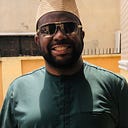Mind The Gap
Being Intentional About Aligning Action and Knowledge
175 zettabytes.
That is how much information some sources estimated to be on the internet in 2022. Others projected that it could reach 120ZB by 2023. This is 2024.
For reference purposes, 1ZB equals 1 trillion GB. Mind-boggling!
While I cannot say specifically the exact number, it is safe to say that there is “a lot” of information out there. I often joke that the human mind is not a thumb drive. Even if it was, it would be grossly inadequate. A lesson in humility.
One of the positives of this, perhaps, is that it should be easier now for most people to accept that no matter how much you (can) know, there will always be so much more that you do not, possibly could never, know!
Beyond the actual storage capacity, the sheer processing power is now certainly beyond what we could ever hope to manage. Let’s not even get started on the machines. Skynet continues to advance! Just kidding.
Where am I really going with all of this? The fact that there is more to know, and more ways to know it doesn’t mean we have gotten any smarter. Despite this surplus of information, we still manage the demands to be “knowledgeable”. We continue to read, to learn, to keep up. It very often feels like a hamster wheel or drinking from a fire hydrant.
A major downside to this that I have observed is that it inadvertently gives a false sense of expertise. Reading Dan Goleman doesn’t make me an expert at emotional intelligence any more than reading Marvel comics makes me a superhero!
We can try as hard as we can to stay on this learning journey, but each person gets to decide just how much is enough. However, I think the world will place more value on three critical abilities as far as knowledge and information are concerned.
1. Knowing where to find what. There will be considerable advantages to those who know how to sift through the tons of information and determine what is valuable per time. The opportunity cost of falling down the algorithmic rabbit hole is huge!
2. Knowing how to learn. This is in itself a superpower because as the body of knowledge continues to evolve, you need to be comfortable challenging previously cherished beliefs and ideas and adapting to the new. This flexibility and adaptiveness is a differentiator in a world so easily polarized by secondhand prejudice.
3. Knowing how to apply what you learn. This takes me back to the previous point about instant expertise. People need to actually put to use what they learn. Otherwise, they are at risk of intellectual constipation.
This third skill is the one I place a premium on, and the crux of my argument. Reading Camus and Kafka does not make me an authority on existentialism. I think that the challenge today is for people to be intentional about closing the gap between what they know (actually, what they skim through at 1.5x speed) and how they actually live.
There is so much content out there today about leadership, relationships, health, finance, strategy, running a business, etc. Sheer availability of information is no longer the issue. It sort of ceased to be the issue when the printing press was invented! Informed action is where the rubber meets the road.
So ask yourself — if you were to do a simple knowledge/belief-action audit, how would you fare? Are you simply racking up the GBs, TBs, or ZBs of information? Or in your personal and professional life, are you putting it to work?
